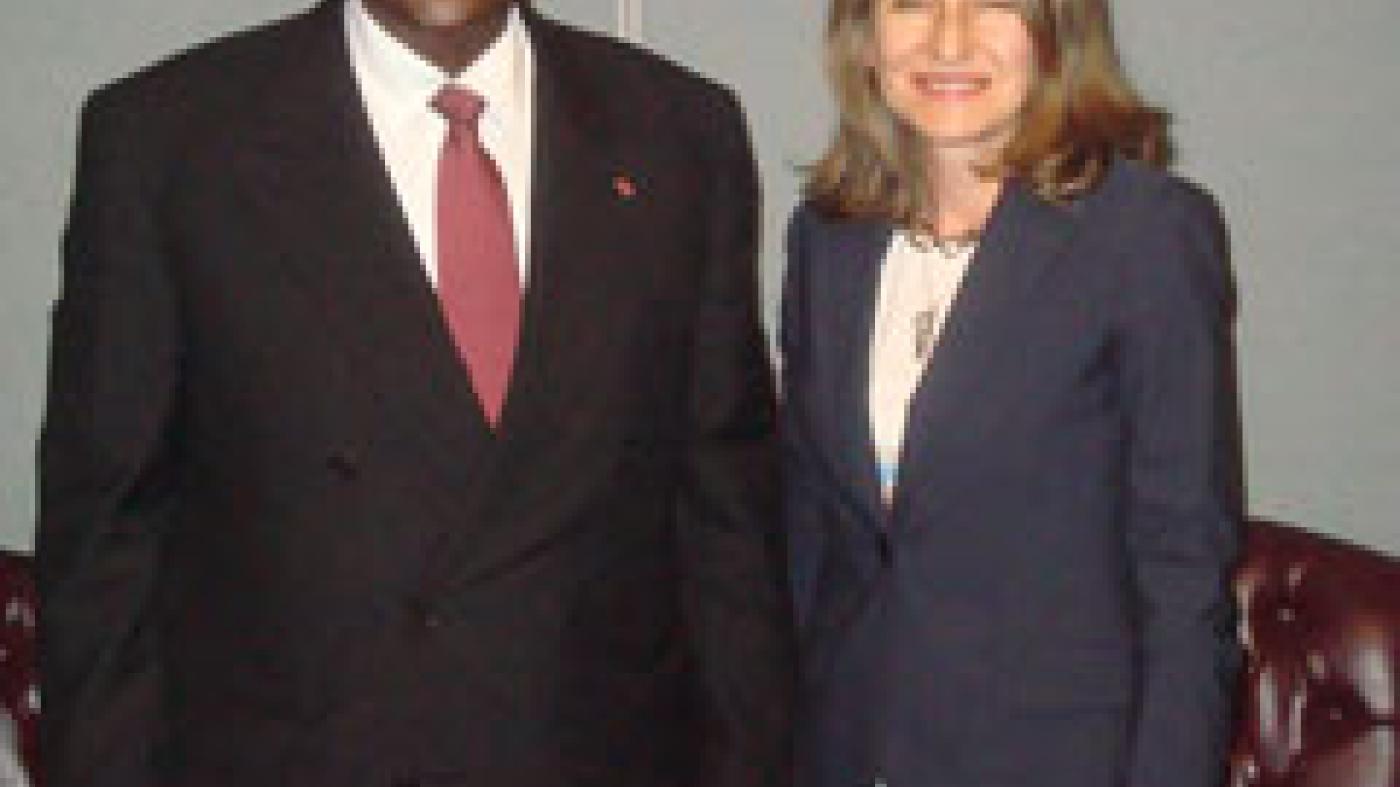
The President of the Assembly of States Parties (“the Assembly”), Ambassador Tiina Intelmann, used the opportunities offered by the General Debate of the General Assembly of the United Nations and the High-Level Debate on the Rule of Law in New York to meet with ministers of non-States Parties to advance the cause of universal ratification and implementation of the Rome Statute of the International Criminal Court (“the Court”).
“It is significant that the UN General Assembly should choose to dedicate a High-Level Meeting to the Rule of Law. States are increasingly realising the importance of the Rule of Law both at the national and international levels. The Court, which investigates and prosecutes individuals for the most serious international crimes, is part of the nexus between these two levels” said President Intelmann, speaking in New York.
In her meetings, the President highlighted the benefits of becoming a State Party. Not only could the International Criminal Court serve as a court of last resort in case national courts were unwilling or unable to investigate and prosecute the crimes under the Court’s jurisdiction. She also pointed out that being part of the Rome Statute family has become the ultimate expression of support for the global fight against impunity.
In her meetings, the President directly addressed many of the criticisms often levelled at the Court. Regarding accusations that the Court has an “Africa focus”, she noted that of the seven situations currently under investigation in Africa, three had been referred by the States in question themselves and two by the Security Council. Mali had recently referred the situation in the north of its country for investigation. She also pointed out that, having recently completed its first trial, the Court is now a functioning international institution and warranted fresh consideration.
The President also noted that the Rome Statute had been amended at the 2010 Review Conference of the International Criminal Court. States considering ratification or accession to the Statute should consider ratifying or acceding to the amendments on the crime of aggression and those pertaining to article 8, which were adopted at this conference.
Finally, the President thanked those States – whether party to Statute or not – that have lent the Court political support in their international relations. She recalled that high-level political support by States Parties and others was vitally important for the Court’s continued success.
President Intelmann’s interlocutors included:
-
H.E. Mr. José Badia, Government Counsellor for Foregn Affairs and for International Economic and Financial Affairs of the Principality of Monaco;
-
H.E. Mr. Hisham Badr, Deputy Foreign Minister of the Arab Republic of Egypt;
-
H.E. Mr. Oldemiro Marques Balói, Minister for Foreign Affairs and Cooperation of the Republic of Mozambique;
-
H.E. Mr. Kablan Duncan, Minister of State, Minister of Foreign Affairs of the Republic of Côte d'Ivoire;
-
H.E. Mr. Abdullah Haji Hassan, Minister for Foreign Affairs and International Cooperation of the Transitional Federal Government of the Somali Republic;
-
H.E. Mr. Oleksandr Lavrynovych, Minister of Justice of Ukraine;
-
H.E. Mr. Frederick A. Mitchell, Minister for Foreign Affairs and Immigraton of the Commonwealth of the Bahamas;
-
H.E. Mr. Nhial Deng Nhial, Minister for Foreign Affairs of the Republic of South Sudan;
-
H.E. Mr. Arnold Nicholson, Deputy Prime Minister and Minister for Foreign Affairs and Trade of Jamaica;
-
H.E. Mr. Elliot Ohin, Minister of State, Minister of Foreign Affairs and Cooperation of the Republic of Togo;
-
H.E. Mr. Ano Pala, Minister for Foreign Affairs, Trade and Immigration of Papua New Guinea;
-
H.E. Mr. Lorin Robert, Secretary for Foreign Affairs of the Federated States of Micronesia; and
-
Mr. Phandu T.C. Skelemani, Minister for Foreign Affairs and International Cooperation of the Republic of Botswana.
For further information on the Assembly of States Parties, please e-mail to[email protected].